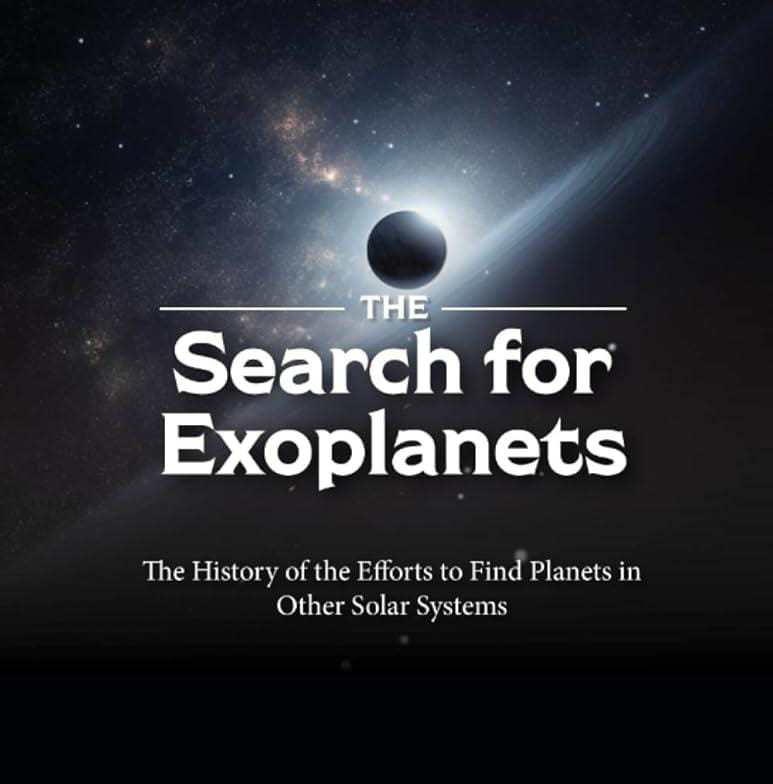**1. Introduction to Exoplanets**
- **
Definition:** Exoplanets are planets that orbit stars outside our solar system.
- **First Discovery:** The first confirmed detection of an exoplanet was in 1992, orbiting the pulsar PSR B1257+12.
- **Significance:** Exoplanetary science helps us understand the diversity of planetary systems and the potential for life elsewhere in the universe.
#### **2. Methods of Exoplanet Detection**
- **Transit Method:**
- **Description:** Detects exoplanets by measuring the dip in a star's brightness as a planet passes in front of it.
- **Key Missions:** Kepler Space Telescope, TESS (Transiting Exoplanet Survey Satellite).
- **Radial Velocity Method:**
- **Description:** Measures the wobble in a star's position due to the gravitational pull of an orbiting planet, detected via shifts in the star's spectral lines.
- **Key Instruments:** HARPS (High Accuracy Radial velocity Planet Searcher).
- **Direct Imaging:**
- **Description:** Captures actual images of exoplanets by blocking out the star's light, usually with a coronagraph.
- **Challenges:** Requires very high resolution and is usually only effective for large, young exoplanets far from their stars.
- **Gravitational Microlensing:**
- **Description:** Detects exoplanets by observing the bending of light from a distant star as a planet passes in front of it, temporarily magnifying the star's light.
- **Advantages:** Can detect planets at great distances from Earth, including those in orbits far from their host stars.
#### **3. Classification of Exoplanets**
- **Hot Jupiters:**
- **Description:** Gas giants that orbit very close to their stars, leading to very high surface temperatures.
- **Notable Example:** 51 Pegasi b, the first discovered exoplanet around a Sun-like star.
- **Super-Earths:**
- **Description:** Planets with a mass larger than Earth's but significantly less than that of Neptune, potentially rocky or with thick atmospheres.
- **Habitability:** Some may lie in the habitable zone where liquid water could exist.
- **Mini-Neptunes:**
- **Description:** Smaller than Neptune but still composed mainly of gases, often with thick atmospheres.
- **Earth-like Planets:**
- **Description:** Rocky planets similar in size to Earth, potentially with conditions suitable for life.
- **Key Example:** Proxima Centauri b, located in the habitable zone of the closest star to the Sun.
#### **4. The Habitable Zone**
- **Definition:** The region around a star where conditions might be right for liquid water to exist on a planet's surface, often referred to as the "Goldilocks Zone."
- **Factors Affecting Habitability:**
- **Stellar Type:** Cooler stars have closer habitable zones; hotter stars have habitable zones farther out.
- **Planetary Atmosphere:** Determines surface temperature and the potential for liquid water.
- **Orbital Stability:** A stable orbit within the habitable zone is crucial for maintaining long-term habitability.
#### **5. Atmosphere and Climate of Exoplanets**
- **Atmospheric Composition:**
- **Importance:** The presence of gases like oxygen, methane, and carbon dioxide can indicate biological activity or surface processes.
- **Detection Techniques:** Transmission spectroscopy during transits, where starlight filters through the planet’s atmosphere, revealing its composition.
- **Climate Models:**
- **Role:** Predict climate patterns on exoplanets based on their distance from their star, atmospheric composition, and other factors.
- **Challenges:** Exoplanet climates can be vastly different from Earth’s, especially on tidally locked planets where one side faces the star permanently.
#### **6. Exoplanetary Systems and Dynamics**
- **Multi-planet Systems:**
- **Example:** TRAPPIST-1, a system with seven Earth-sized planets, three of which lie in the habitable zone.
- **Importance:** Studying these systems helps us understand planet formation and migration theories.
- **Orbital Resonance:**
- **Definition:** A situation where planets exert regular, periodic gravitational influence on each other, often stabilizing their orbits.
- **Significance:** Helps explain the arrangement of planets in some exoplanetary systems.
#### **7. The Search for Biosignatures**
- **Definition:** Chemical indicators in a planet's atmosphere or surface that may hint at the presence of life.
- **Key Biosignatures:**
- **Oxygen and Ozone:** Produced by photosynthetic organisms.
- **Methane:** Can be produced by biological processes, especially in the presence of oxygen.
- **Water Vapor:** Essential for life as we know it, its presence can also indicate liquid water on a planet’s surface.
#### **8. Future Missions and Research**
- **James Webb Space Telescope (JWST):**
- **Objective:** To study the atmospheres of exoplanets in detail, searching for signs of life and understanding their composition and climate.
- **ESA’s PLATO Mission:**
- **Goal:** To find Earth-sized exoplanets in the habitable zone and determine their habitability.
- **ARIEL Mission:**
- **Focus:** To conduct a chemical census of exoplanetary atmospheres, improving our understanding of planet formation and evolution.
#### **9. The Drake Equation and Exoplanetary Life**
- **Definition:** An equation proposed by Frank Drake to estimate the number of active, communicative extraterrestrial civilizations in our galaxy.
- **Parameters:**
- **N:** The number of civilizations with which humans could communicate.
- **Factors:** Includes the rate of star formation, the fraction of those stars with planets, the number of planets that could support life, and the length of time civilizations can communicate.
#### **10. Ethical Considerations in Exoplanetary Exploration**
- **Planetary Protection:**
- **Concerns:** Preventing contamination of both Earth and other planets with extraterrestrial organisms.
- **Guidelines:** Developed by space agencies to ensure that missions do not harm potential life forms or ecosystems on other planets.
- **Colonization Ethics:**
- **Debate:** Whether it is ethical to colonize other planets or moons, given the potential to disrupt unknown ecosystems.





No comments:
Post a Comment